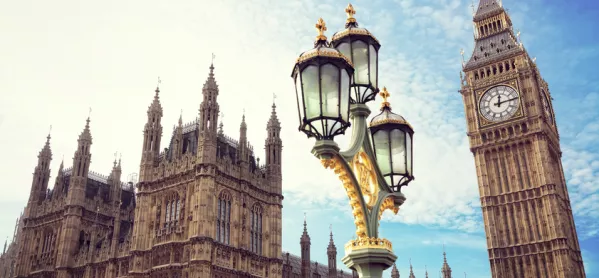A leaked memo photographed being carried into No 10 Downing Street today confirmed that serious plans are afoot to expand the number of grammar schools in England.
But the document also revealed the government’s fears over potentially serious opposition that legislation allowing more grammar schools could face in the House of Lords.
The briefing note, written by Department for Education permanent secretary Jonathan Slater, says any attempt to expand grammars should only be undertaken once “we have worked with existing grammars to show how they can be expanded and reformed”.
“I simply can’t see any way of persuading the Lords to vote for selection on any other basis,” it adds.
Moves to expand grammar schools would involve new legislation as new grammars were outlawed in 1998 under the Labour government at the time.
According to a well-placed source close to government, ministers would face big opposition to any attempt to reintroduce grammar schools from the Lords.
“If Labour and the Liberal Democrat peers are against it there is no Tory majority so they would not have much hope of getting it through,” the source said.
“Conservative peers tend to be far more independently minded as well so they don’t always follow the government whip.”
The source added that the government “are right to highlight this as an area of concern”. “Most of the opposition to controversial legislation often comes from the Lords.”
The make-up of the House of Lords currently stands at:
*244 Conservative peers
*174 cross benchers
*208 Labour peers
*105 Liberal Democrat peers
Dr Andrew Blick, a constitutional expert at King’s College London, said that the large number of crossbench peers could be influential in voting down legislation since the Conservatives did not have a majority in the Lords.
In strict legal terms, he said, the government could force it through under the Parliament acts of 1911 and 1949.
He said: “That allows the commons to force the issue through if the Lord votes it down twice.
“Will the Lords really take it to that point, or will they amend it a bit?
“It will be interesting to see whether or not the Lords decides to dare the government to force the issue”.
But the Parliament Acts, he said, had only been used seven times since 1911, notably in the case of the 2004 Hunting Act - an issue as divisive as grammar schools.
But the Lords were more likely to use their powers to slow legislation down and seek amendments, he said, such as allowing only partial selection by schools.
Under the “Salisbury Doctrine”, the Lords do not block legislation that is in the government’s manifesto, but that did not apply to the grammar schools matter, he said.
“They [the Lords] may feel they can behave more assertively over this particular issue”, he said.
It was important not to rule out objections from the Conservative party’s own backbenchers, Dr Blick added, noting that public opinion would also be a factor in whether the government tried to push it through.
